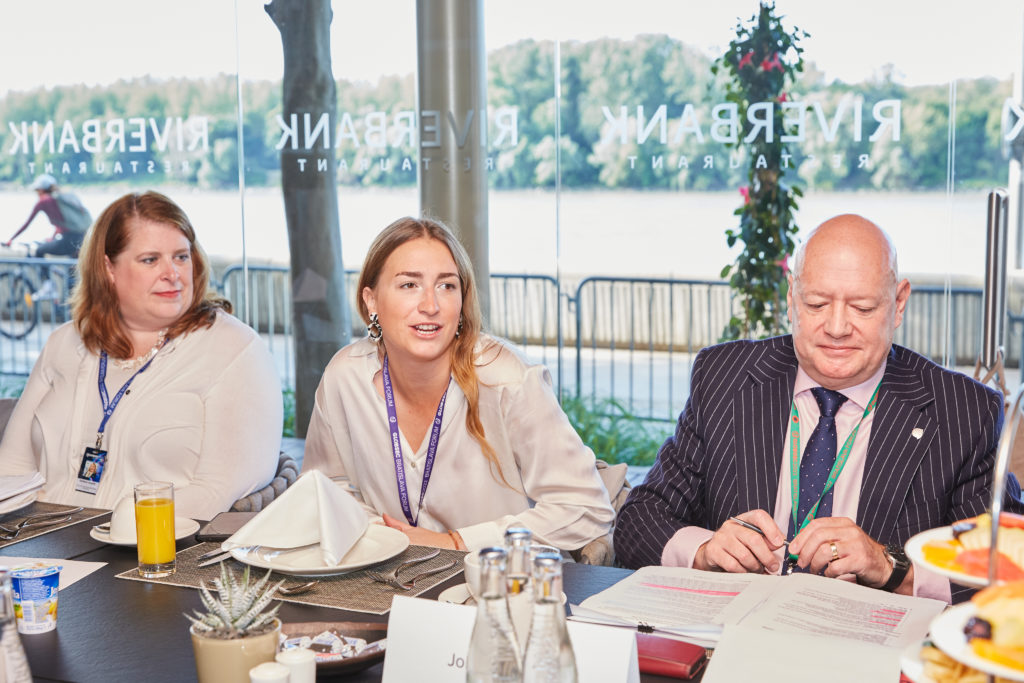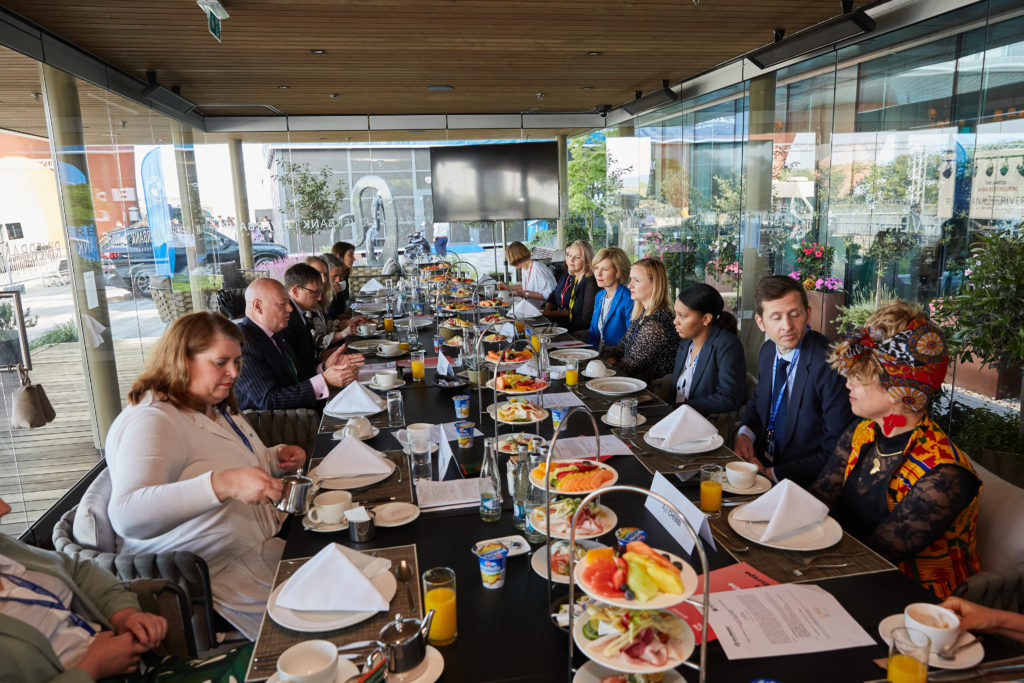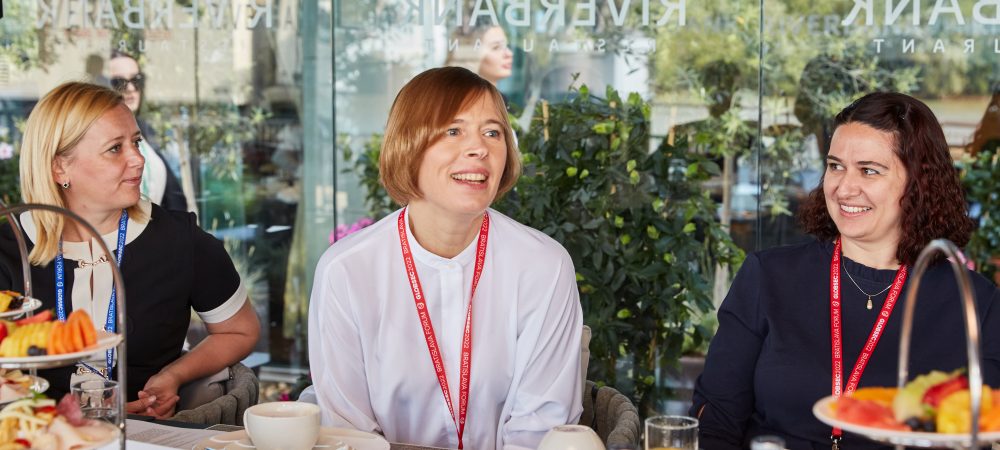Outcome Summary: GLOBSEC 2022 Bratislava Forum
Author: Giulia Papapietro
Now more than ever it has become clear how fundamental women’s involvement in conflict resolution, negotiating, and maintaining peace and stability is. With war on Europe’s doorsteps, we are reminded that women, regardless of their role—diplomat, entrepreneur, teacher, or journalist—are affected differently, and their experiences and knowledge may have a lasting impact on restoring peace and providing security and prosperity. During the CEE Her Initiative event, held on the side-lines of the GLOBSEC Bratislava Forum 2022, the main questions which were brought up were how to make women’s voices be heard more loudly, in particularly during times of conflict, and what are the next practical measures to include women in decision-making structures, whether in talks and diplomacy, entrepreneurship, or the media.
During the event, moderated by John Barter – Senior Vice President at GLOBSEC – different takes and personal experiences were shared by the speakers. Opening the discussion, Kersti Kaljulaid – former first female President of Estonia, and now Global Advocate of the UN Secretary-General for Every Woman Every Child – talked about how in order to give women a better chance of reaching powerful position, it is important an equal share of responsibilities between men and women, both at the workplace and at home, and a set of better social devices are in place. Barbara Langley – Director of the Center for Women’s Economic Empowerment at the Center for International Private Enterprise – continued by reminding participants about the work of women in military forces, and then called for the creation of an environment where women leaders can thrive, and their voices can be amplified. Rosen Plevneliev – former President of Bulgaria – shared his experience of being surrounded by competent women when he was in charge of his country, and underlined how we should collectively not only point at the problem of gender inequality but take a pro-active stance in fighting it. The following speaker, Aya Chebbi – founder and chair of the Nala Feminist Collective – focused on the very crucial point of the existing generational gap, and stressed the need for an intergenerational approach to promote women leadership and global solidarity to achieve gender equality: women should occupy the leadership positions they deserve. Finally, Nancy Ziuzin Schlegel – Vice-President of International Government Affairs at Lockheed Martin Corporation – remarked how when women thrive, all society does as well, thus it is fundamental to give them a seat at the decision-making table.
The main takeaway from this event was the necessity to give more space and consideration to the work of women – including young ones – in all sectors of society, and especially in conflict resolution, where a gender analysis of conflict drivers represents one of the most useful instruments at the disposal of peacemakers. As Aya Chebbi said in one of her last remarks, “when women come together, they threaten patriarchy”, an action which represents one step towards a more equal and peaceful world for everyone.



